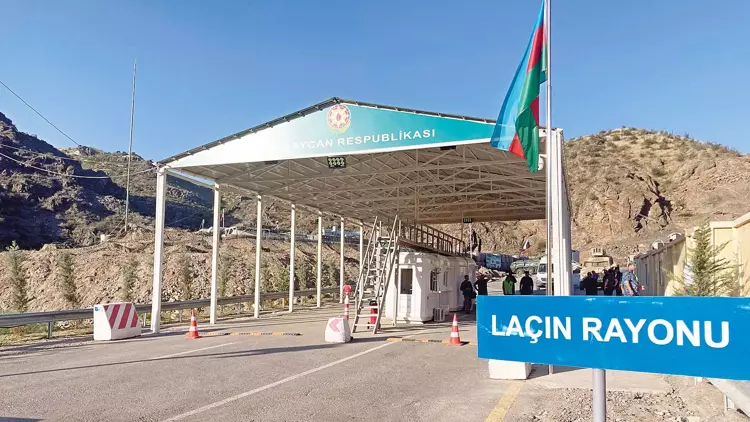
The tensions in the South Caucasus nowadays are once again rising. At the core of this distressing development lies the decades-long Karabakh conflict between Armenia and Azerbaijan. As the signing of the final peace agreement between the two South Caucasus republics after the 2020 Karabakh War is held off, the risk of renewed military confrontations becomes more actual. This situation serves Russia when it is actually in dire straits because of the war in Ukraine as they give Moscow the leverage to keep its military presence in both Armenia and Azerbaijan, hence perpetuating its influence in the South Caucasus. In that, the West, which could gain an edge against Russia in the region by pushing for Armenia and Azerbaijan peace agreement and eliminating the reasons for Russian military presence accordingly, makes a strategic miscalculation by contributing to the continuation of the conflict in quest for winning over Armenia as a ‘second Georgia’ against Russia.
Charges and Countercharges
Several reasons inflame the situation in the South Caucasus. Armenia charges Azerbaijan for occupying around 150 square kilometers of its sovereign territory. In addition, it accuses Azerbaijan of attempted genocide against the Armenian population of the former Nagorno Karabakh region by blocking the Lachin road, cutting the region off from the outside world, and preventing the transport of goods including vital ones such as food and medicine.
In its turn, Baku charges Yerevan for not pulling its approximately ten thousand troops out of Karabakh and smuggling further military supplies in. Baku blames Yerevan for “delay and confusion game” to postpone the final peace agreement that would rest on mutual recognition of territorial integrity and sovereignty of the parties as long as possible until Armenia gains relative power to be able to water down this notion in order to push for Karabakh’s independence and its subsequent unification with Armenia or at least some sort of autonomy for the Karabakh Armenians.
Among Armenia’s two main accusations against Azerbaijan, the allegation of Azerbaijani occupation of its sovereign territory is the more down-to-earth one. In any case, the real situation will be clear once the maps on which the border delimitation and demarcation will be carried out are put on the table. Yet, it can be seen that Azerbaijan holds the disputed areas as leverage to force Armenia to pull back its troops from Karabakh and to consent to border delimitation and demarcation that would mean its formal recognition of Azerbaijan’s sovereignty in Karabakh. Besides that, given that some of the disputed areas are militarily strategic spots, it could be inferred that Baku takes the possibility of renewed armed clashes into consideration and wants to hold these posts until the signing of the final peace agreement. Hence, what we witness is Baku’s compulsion on Yerevan to step back from its “delay and confusion game.” Accordingly, it could be expected that once the peace negotiations get back on the rails, the territorial dispute will be cleared.
As to the accusations of blockade and attempted genocide, Azerbaijan sustains that what it imposing is not a blockade but border control and transit checks as a normal regulation at any state border. It disaffirms the charge of attempted genocide by underlining that it is set to provide aid to the Karabakh population through the Aghdam-Khankendi road, yet this road is blocked by some Karabakh Armenians. Here too, we are witnessing a rather coercive policy of Azerbaijan. However, the fact that Baku offers humanitarian aid to Armenians in Karabakh through the Aghdam-Khankendi road is the simple reality that defies the claim of attempted genocide.
The Essence of the Lachin Road-Aghdam Road Dispute
Why is the Lachin Road-Aghdam Road dispute so central? The essence of this dispute is the question – and according to the Armenian side, the threat - of integration of the Karabakh Armenians into Azerbaijan. The Armenian argument is that Baku aims to cease the Lachin road to function as a corridor between Armenia and Karabakh, hence cutting the physical connection between the two and eventually severing the ties between Armenia and Karabakh Armenians, while using the Aghdam road as a means for integrating the Armenian population of Karabakh to Azerbaijan. However, Armenians thoroughly reject the prospect of integration as Azerbaijani citizens. In brief, the core of the Lachin Road v. Aghdam Road dispute is not the possibility of genocide but the political future of the Armenians in Karabakh. As to this point, the Azerbaijani side is quite plain in stating that Karabakh Armenians will either become Azerbaijani citizens with all the rights emanating from this status or if they reject such a future, they should consider leaving Azerbaijan for Armenia. Though this position of the official Baku sounds harsh, if the truth be told, is simply realistic.
Continuation of the Tensions Benefiting Russia
The progress of normalization in the South Caucasus at a snail’s pace benefits Russia more than Armenia that recently tries to break the chains that tie it to the former, or any other actor. This could be understood when the Russian strategy and tactics not only in the South Caucasus but around its neighborhood are grasped.
The circumstantial evidence suggests that Russian intervention ended the 44-day War in 2020 (the second Karabakh war). That is, Russia pressured Azerbaijan to cease its offensive against the already defeated Armenian forces before taking all the territory of the former Nagorno Karabakh region after liberating the surrounding regions. As such, Russia effectively interrupted the resolution of the Karabakh problem once and for all albeit through the use of force and beget the continuation of the conflict in a different format.
Why did Russia do that? Why does Russia want the Karabakh conflict to last? The answer lies in Russia’s near-abroad policy and its understanding of spheres of influence. Russia as a country with an ‘imperial complex’ sees its neighboring regions, particularly the former Soviet republics, as its natural and rightful sphere of influence. With its already eroded soft power, however, capitalizing on the tensions in and between those countries is Russia’s main tool to do so.
In the case of the Armenia-Azerbaijan conflict, Russia was skillful enough to instill its two thousand troops in the Azerbaijani territory as peacekeepers. This added to its troops in Armenia and the breakaway regions of Georgia. In this way, Moscow reinforced its military presence in the South Caucasus, hence its coercive power.
According to the 9 November 2020 Trilateral Ceasefire Declaration, Russian peacekeepers are obliged to leave Karabakh after five years if Armenia or Azerbaijan so asks. It is almost certain that Baku will take this step in 2025. This is a problem for Russia that it needs to deal with. However, at this time Russia, for wider geopolitical reasons (such as Azerbaijan’s geographic importance for Russia’s economic integration with the non-western countries of Asia and the inability to afford alienating the most important South Caucasus country while the Russia-Ukraine war rages), can hardly dare to openly fall out with Baku. Therefore, the way for Russia is the non-resolution of the Karabakh conflict and the permanence of the tensions at a controllable level, a situation that would legitimatize its peacekeepers in Azerbaijan. It should also be noted that Russia’s influence on Armenia is also very much dependent on the continuation of the antagonisms in the region between Armenia and Azerbaijan and Armenia and Türkiye. Hence, the continuation of the disputes gives leverage to Russia to continue its presence in Armenia, as well.
The West Paradoxically Serving Russian Interests
Whereas the peace talks following the 2020 Trilateral Ceasefire Declaration were carried out with the Russian mediation, by December 2021 the EU entered into the scene as an alternative peace broker. This was a quite sensible step for the EU (hence, the US) given that both Armenia and Azerbaijan were aware of and discontent with Russia’s real intentions. Acting as an honest broker, the EU could gain hegemonic power in the South Caucasus vis-à-vis Russia. This was also a service to the Russia-containment policy of the US.
Until recently, the EU adopted a relatively fair stance between Armenia and Azerbaijan (which is not a very typical approach of the EU) despite the ever-present highly biased pro-Armenian stance of some Western European countries, particularly, France. Yet, this approach of the West (the EU, some important Western European countries, and the US) is giving its place to a more familiar pro-Armenian outlook. In that, the propaganda of the alleged attempted genocide in Karabakh that popped up and intensified in the last two months plays a central role.
The re-surfacing pro-Armenian bias of the West encourages the radicals in Karabakh, Armenia, and the diaspora, most of whom are pro-Russian actors, to sabotage the peace process. As mentioned above, the logic behind that is to buy time to regain relative power vis-à-vis Azerbaijan to be able to exert pressure for independence and the following unification with Armenia or at least some sort of autonomy for the Karabakh Armenians. However, for Baku, such prospects are non-starters for normalization and peace. Furthermore, Baku does not rule out the possibility of military confrontation if the Armenian side refuses to recognize its territorial integrity and sovereignty, hence Karabakh as part of Azerbaijan. These developments hand Russia a wonderful opportunity to continue its military presence in Armenia and Azerbaijan on a silver platter. This is the reason why the West’s direct or indirect encouragement of the Armenian radicals is a strategic miscalculation vis-à-vis Russia.
All in all, no one can dispute that normalization and peace should be based on the principles of safety and dignity for everyone in the region. For this reason, concerns of the Armenians in Karabakh should be reckoned with. A big responsibility, in this regard, is on Baku to ameliorate its relations with its citizens of Armenian ethnicity. It should begin developing social and economic programs to this end and accelerate the existing ones without a moment’s delay and find ways to converse these programs with Karabakh Armenians. What and how the West can contribute to the normalization and peace in the South Caucasus is to encourage and assist Baku to adopt policies to this end, not giving false hopes to Armenians. In this way, the West can significantly narrow down Russia's sphere of action in the South Caucasus.
*Photo: hurriyet.com.tr
© 2009-2025 Center for Eurasian Studies (AVİM) All Rights Reserved
No comments yet.
-
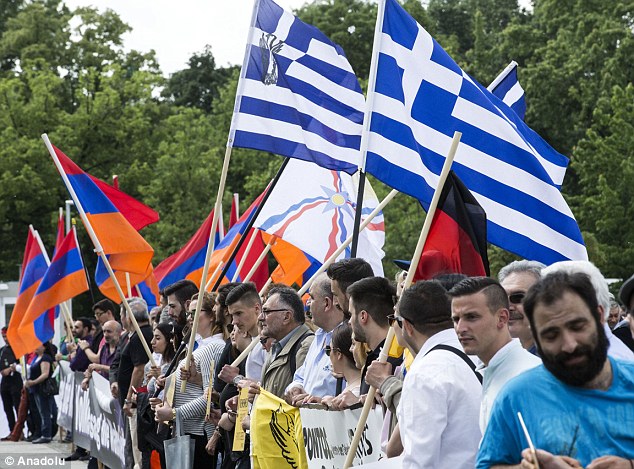 PONTIC GREEK GENOCIDE LOBBY FOLLOWS THE FOOTSTEPS OF THE ARMENIAN GENOCIDE LOBBY
PONTIC GREEK GENOCIDE LOBBY FOLLOWS THE FOOTSTEPS OF THE ARMENIAN GENOCIDE LOBBY
Turgut Kerem TUNCEL 07.06.2017 -
 AN APPEAL OF THE ARMENIAN AND AZERBAIJANI CIVIL SOCIETY ACTIVISTS TO THE PRESIDENTS OF ARMENIA AND AZERBAIJAN
AN APPEAL OF THE ARMENIAN AND AZERBAIJANI CIVIL SOCIETY ACTIVISTS TO THE PRESIDENTS OF ARMENIA AND AZERBAIJAN
Turgut Kerem TUNCEL 05.12.2016 -
 PROTESTS AGAINST THE “SOCIAL PARASITE TAX” IN BELARUS
PROTESTS AGAINST THE “SOCIAL PARASITE TAX” IN BELARUS
Turgut Kerem TUNCEL 24.03.2017 -
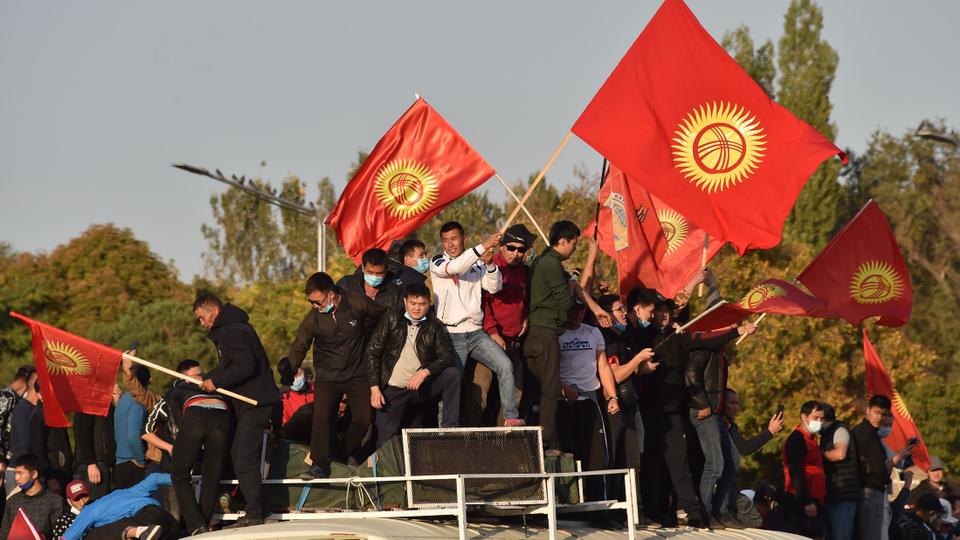 TURBULENT TIMES IN KYRGYZSTAN
TURBULENT TIMES IN KYRGYZSTAN
Turgut Kerem TUNCEL 14.12.2020 -
THERE MAY BE HOPE: LET’S BE OPTIMISTIC ABOUT THE RESOLUTION OF THE TURKISH-ARMENIAN CONTROVERSY
Turgut Kerem TUNCEL 24.02.2016
-
 CONSTRUCTIVE EURASIANISM AND COOPERATIVE SECURITY: AVİM’S PERSPECTIVE ON THE BLACK SEA REGION
CONSTRUCTIVE EURASIANISM AND COOPERATIVE SECURITY: AVİM’S PERSPECTIVE ON THE BLACK SEA REGION
Teoman Ertuğrul TULUN 10.10.2025 -
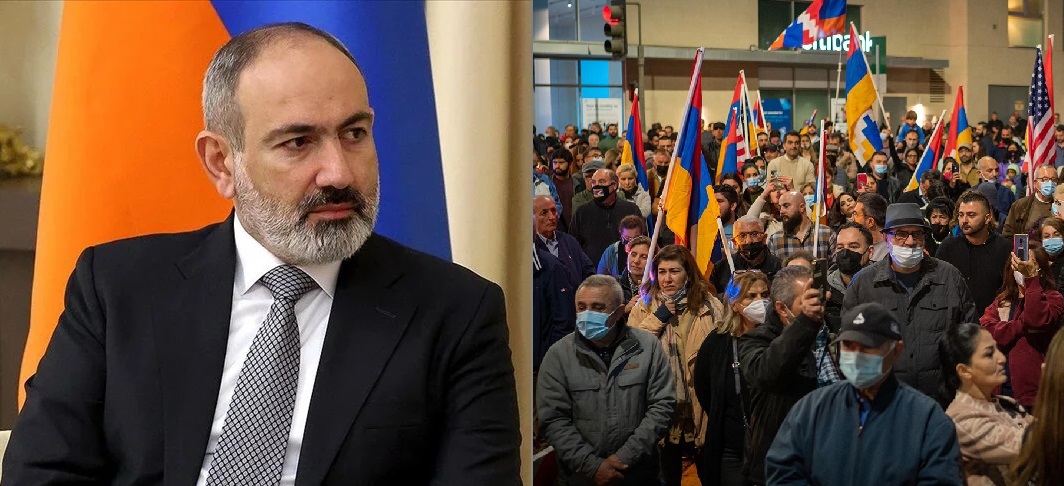 THE DIVERGENT AGENDAS OF THE ARMENIAN GOVERNMENT AND THE DIASPORA
THE DIVERGENT AGENDAS OF THE ARMENIAN GOVERNMENT AND THE DIASPORA
Mehmet Oğuzhan TULUN 24.04.2024 -
 THE OPENING OF HAGIA SOPHIA FOR WORSHIP: REACTIONS FROM THE WORLD COUNCIL OF CHURCES AND THE ARMENIAN CATHOLICOSATE OF CILICIA (ANTELIAS)
THE OPENING OF HAGIA SOPHIA FOR WORSHIP: REACTIONS FROM THE WORLD COUNCIL OF CHURCES AND THE ARMENIAN CATHOLICOSATE OF CILICIA (ANTELIAS)
AVİM 24.07.2020 -
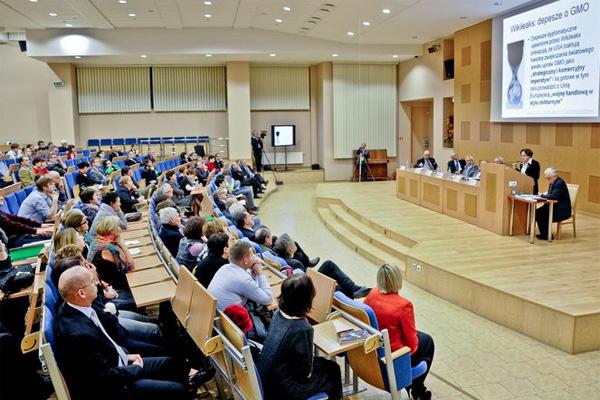 GERMANY AND GENOCIDE: A MATTER OF DIPLOMATIC LEVERAGE
GERMANY AND GENOCIDE: A MATTER OF DIPLOMATIC LEVERAGE
AVİM 08.09.2017 -
FORMER ARMENIAN FOREIGN MINISTER V. OSKANIAN IS INCRIMINATED
Alev KILIÇ 04.10.2012
-
25.01.2016
THE ARMENIAN QUESTION - BASIC KNOWLEDGE AND DOCUMENTATION -
12.06.2024
THE TRUTH WILL OUT -
27.03.2023
RADİKAL ERMENİ UNSURLARCA GERÇEKLEŞTİRİLEN MEZALİMLER VE VANDALİZM -
17.03.2023
PATRIOTISM PERVERTED -
23.02.2023
MEN ARE LIKE THAT -
03.02.2023
BAKÜ-TİFLİS-CEYHAN BORU HATTININ YAŞANAN TARİHİ -
16.12.2022
INTERNATIONAL SCHOLARS ON THE EVENTS OF 1915 -
07.12.2022
FAKE PHOTOS AND THE ARMENIAN PROPAGANDA -
07.12.2022
ERMENİ PROPAGANDASI VE SAHTE RESİMLER -
01.01.2022
A Letter From Japan - Strategically Mum: The Silence of the Armenians -
01.01.2022
Japonya'dan Bir Mektup - Stratejik Suskunluk: Ermenilerin Sessizliği -
03.06.2020
Anastas Mikoyan: Confessions of an Armenian Bolshevik -
08.04.2020
Sovyet Sonrası Ukrayna’da Devlet, Toplum ve Siyaset - Değişen Dinamikler, Dönüşen Kimlikler -
12.06.2018
Ermeni Sorunuyla İlgili İngiliz Belgeleri (1912-1923) - British Documents on Armenian Question (1912-1923) -
02.12.2016
Turkish-Russian Academics: A Historical Study on the Caucasus -
01.07.2016
Gürcistan'daki Müslüman Topluluklar: Azınlık Hakları, Kimlik, Siyaset -
10.03.2016
Armenian Diaspora: Diaspora, State and the Imagination of the Republic of Armenia -
24.01.2016
ERMENİ SORUNU - TEMEL BİLGİ VE BELGELER (2. BASKI)
-
AVİM Conference Hall 24.01.2023
CONFERENCE TITLED “HUNGARY’S PERSPECTIVES ON THE TURKIC WORLD"









